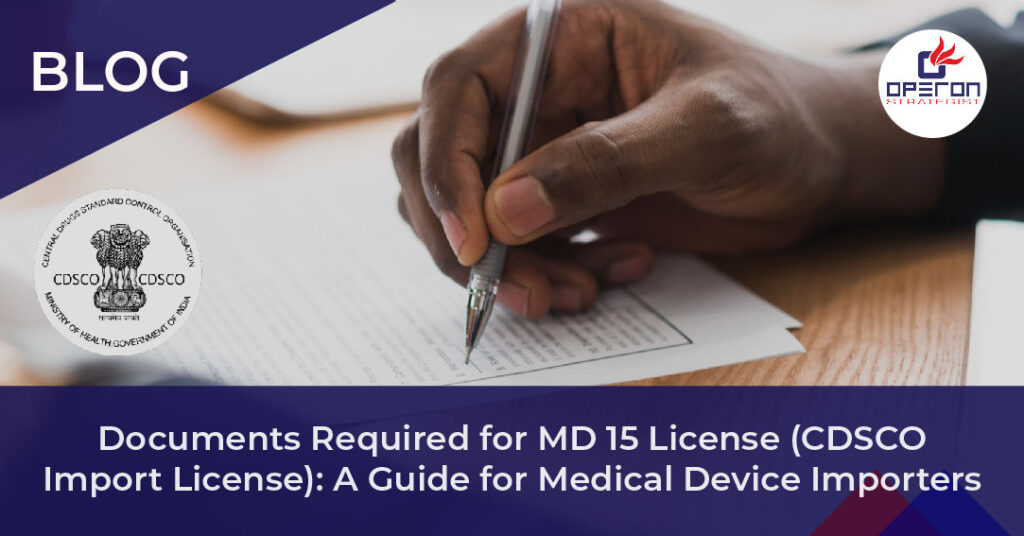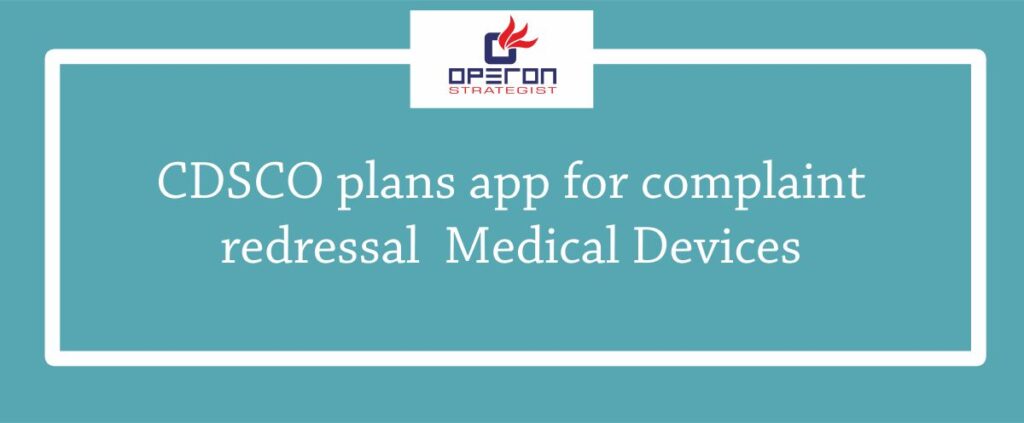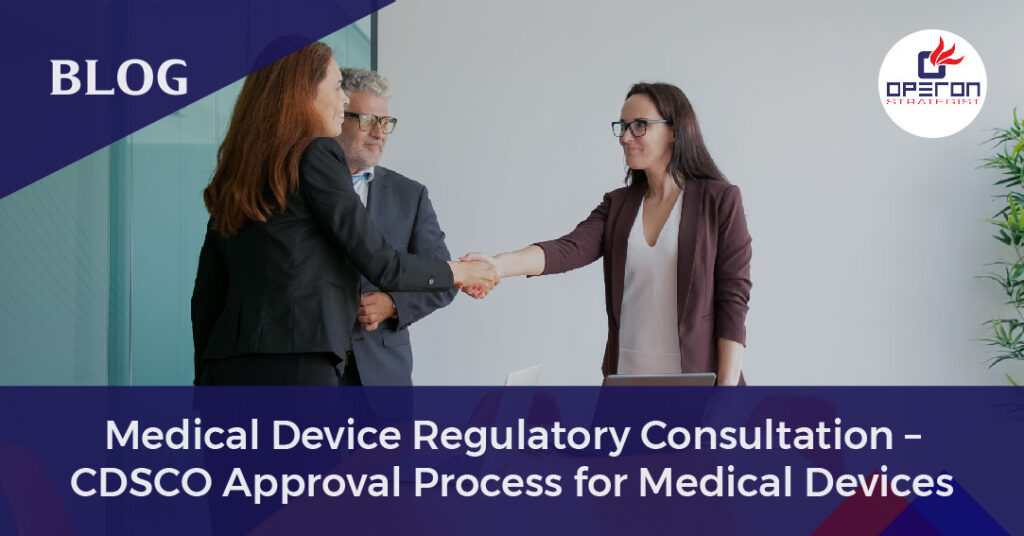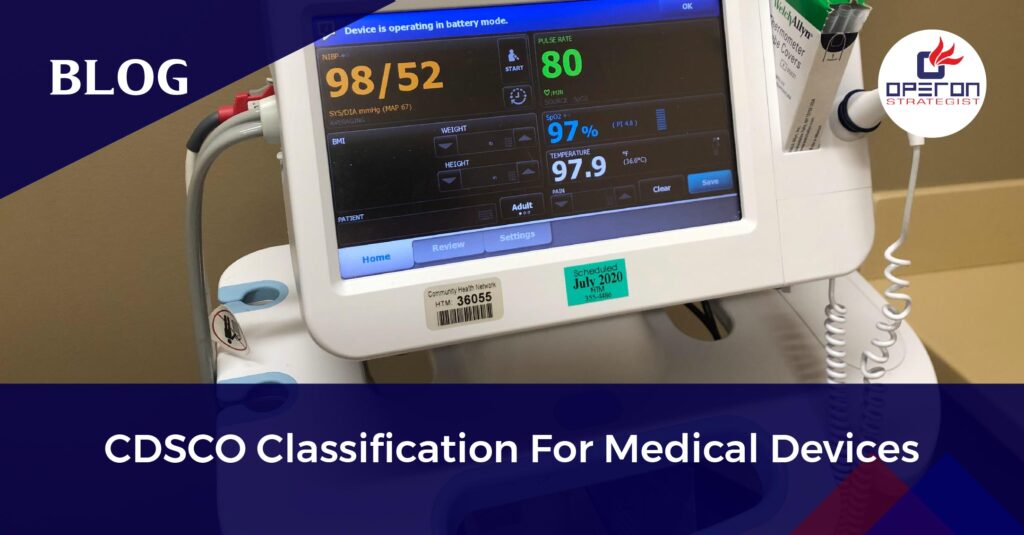Documents Required for MD 15 license: An Overview
Obtaining an MD-15 license (Indian CDSCO import license) is a crucial step for importing medical devices into India. The process is regulated by the Central Drugs Standard Control Organization (CDSCO) to ensure that all imported devices meet quality and safety standards. To streamline the application process, applicants must submit several critical documents that provide evidence of compliance with national and international regulations. This blog will guide you through the essential documents required to obtain an MD 15 license and why each is important.
Also Read our blog on MD 15 License: Gateway to Import Medical Devices in India
Looking For a Medical Device Regulatory Consultant?
Let’s have a word about your next project
1. Power of Attorney
A Power of Attorney (PoA) is required to designate an authorized agent who will handle the import process on behalf of the overseas manufacturer. The document must be oppostilated or authenticated in India by either:
- A Magistrate of First Class
- The Indian Embassy in the country of origin
- An equivalent authority through an apostille process
The POA must be accompanied by an undertaking from the authorized agent, confirming their responsibility for compliance with CDSCO regulations.
2. Self-attested Copy of Valid Manufacturing License
A valid manufacturing license proves that the device is produced in accordance with the regulatory requirements of the country of origin. The self-attestation ensures the document’s authenticity for the CDSCO.
3. Free Sale Certificate or Marketing Authorization
This document demonstrates that the device is legally sold or distributed in the country of origin. A copy of the certificate, duly apostilled or notarized, must be provided along with a marketing authorization from the National Regulatory Authority of the manufacturer’s country.
4. Inspection or Audit Report
The importer must submit a copy of the most recent inspection or audit report, conducted by a Notified Body, National Regulatory Authority, or Competent Authority. This report must be from within the last three years, confirming the manufacturing site complies with relevant quality standards.
5. ISO 13485 Certificate
A notarized copy of the ISO 13485 certificate, which reflects the manufacturer’s compliance with international standards for medical device quality management systems, is mandatory.
6. Full Quality Assurance Certificate or CE Certificates
Notarized copies of various CE certificates, such as:
- Full Quality Assurance Certificate
- CE Type Examination Certificate
- CE Product Quality Assurance Certificate These demonstrate the device’s conformity to European Union health, safety, and environmental protection standards.
7. CE Design Certificate
A CE design certificate is essential to validate the device’s design meets EU safety requirements. This document must also be notarized.
8. Declaration of Conformity
The manufacturer must submit a notarized Declaration of Conformity, which states that the device complies with applicable regulatory requirements and standards.
9. Overseas Manufacturing Site Registration
A notarized copy of the registration of the overseas manufacturing site is required. This document must be issued by the competent authority in the country of origin, verifying that the plant is registered and authorized to manufacture medical devices.
10. Constitution Details of Authorized Agent
The domestic authorized agent’s constitution details are needed to verify the legal structure and authority of the agent representing the manufacturer in India.
11. Plant Master File (PMF)
The Plant Master File provides detailed information about the manufacturing facility, including:
- Facility layout
- Production process
- Quality control measures
The PMF is critical for assessing the manufacturing site’s compliance with safety and quality standards.
12. Device Master File (DMF)
The Device Master File offers comprehensive details about the medical device itself, including:
- Design specifications
- Manufacturing process
- Safety and performance evaluations
The DMF helps regulators ensure the device is safe and effective for the Indian market.
Why Are These Documents Important for MD 15 License?
Each document in the MD 15 application process plays a vital role in demonstrating compliance with national and international regulatory standards. By submitting the necessary paperwork, importers show that their medical devices meet stringent safety, performance, and quality requirements. This not only facilitates smoother regulatory approval but also ensures patient safety in India.
Need More Clarity on the Documents Required for an MD 15 License?
Conclusion
Securing an MD 15 license for medical device importation requires a well-prepared application with detailed documentation. Each document serves a purpose in proving the manufacturer’s compliance with regulations, both in India and internationally. If you’re navigating the MD 15 license process and need expert guidance, Operon Strategist can assist you in compiling the necessary documentation and ensuring regulatory compliance every step of the way.
For more information or personalized support, contact Operon Strategist today!




